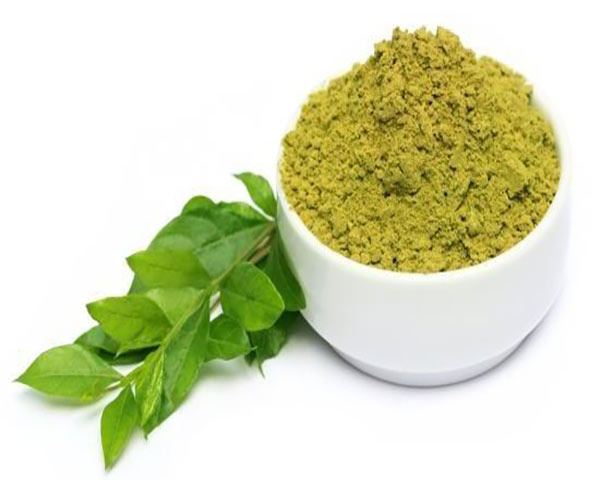Henna benefits for skin and hair and medicinal uses
Henna benefits
Henna benefits for skin and hair and medicinal uses on Nicholi site. We hope this article will be of interest to you.
Unveiling Its Magical Benefits for Skin, Hair, and Health Throughout history, henna has been treasured for its remarkable qualities and diverse applications. Known for its rich reddish-brown dye, henna has not only adorned the hands of brides in ancient rituals but has also been hailed for its various health benefits. From enhancing the beauty of skin and hair to promoting overall well-being, henna continues to be a natural powerhouse for those seeking a touch of nature’s magic. In this article, we will explore the captivating benefits of henna for skin, hair, and health while also acknowledging any potential downsides.
Henna Benefits for Skin
The Enchanting Artistry on Your Hands and Beyond
Henna, also known as Mehndi, has been an integral part of cultural and religious practices for centuries. Beyond its intricate decorative art, henna also brings forth several benefits for the skin. Rich in tannins and other natural compounds, henna provides the following advantages:
Natural Cooling Effect: Henna possesses natural cooling properties, making it an excellent remedy for soothing sunburns and reducing skin irritation.
Antimicrobial Action: Henna exhibits antimicrobial properties, helping to fight against bacteria and fungi. It can be used to treat minor skin infections and promote wound healing.
Anti-Inflammatory Properties: The anti-inflammatory nature of henna can alleviate inflammation caused by conditions like eczema, psoriasis, and acne.
Natural Exfoliation: Henna can gently exfoliate the skin, removing dead cells and promoting a smoother, more radiant complexion.
Henna Benefits for Hair
Embracing Lustrous Locks: The Henna Hair Treatment
For hair enthusiasts seeking a natural alternative to chemical hair dyes and nourishing hair treatments, henna comes to the rescue. Its benefits for hair include:
Natural Hair Dye: Henna is a well-known natural hair dye that imparts a reddish-brown hue to the hair. It covers gray hairs effectively, providing a vibrant and natural look.
Hair Strengthening: Henna forms a protective coating around the hair shaft, enhancing its strength, thickness, and overall health.
Reduced Hair Fall: Regular henna treatments can reduce hair fall by nourishing the hair and promoting a healthier scalp.
Henna Benefits for Hair Growth
Beyond its dyeing and strengthening properties, henna also stimulates hair growth and contributes to longer, healthier tresses. The benefits include:
Improved Scalp Health: Henna nourishes and moisturizes the scalp, promoting a healthy environment for hair growth.
Dandruff Control: Henna’s antifungal properties can help control dandruff and reduce scalp itchiness.
Stimulated Hair Follicles: The application of henna can increase blood circulation to the scalp, stimulating hair follicles and encouraging new hair growth.
Disadvantages of Henna for Hair
While henna offers numerous benefits, it’s essential to be aware of the possible disadvantages to make informed decisions:
Color Limitations: Henna primarily imparts a reddish-brown color, which may not be suitable for everyone’s preference.
Time-Consuming Process: Henna application can be time-consuming, requiring several hours to achieve the desired results.
Difficult to Remove: Henna is a semi-permanent dye and can be challenging to remove from hair if you decide to change your hair color later on.
Benefits of Drinking Henna Water
Beyond external applications, henna can also be consumed as henna water. While it’s not as common as its topical use, drinking henna water is believed to offer various health benefits, such as aiding digestion and promoting liver health. However, it’s crucial to consult a healthcare professional before incorporating henna water into your diet.
Henna in Islam
Henna holds a special place in Islamic traditions and is often used in religious ceremonies and celebrations, especially during Eid and weddings. The significance of henna in Islam goes beyond its aesthetic appeal, representing blessings, protection, and spiritual symbolism.
What to Add in Mehndi for Hair Growth
To enhance the hair growth benefits of henna, various natural ingredients can be added to the henna paste. From nourishing oils like coconut and olive to hair-friendly herbs like amla and fenugreek, these additions can further boost the overall health of your hair.
Henna Plant Medicinal Uses
The henna plant itself possesses several medicinal properties, from its leaves to its bark. Traditional medicine systems have harnessed the healing potential of henna for various purposes, including wound healing, pain relief, and reducing inflammation. In conclusion, henna has proved itself to be much more than just a cosmetic adornment. Its benefits for skin, hair, and health have stood the test of time, captivating generations with its natural magic. However, as with any natural remedy, it’s essential to exercise caution and perform patch tests to avoid any adverse reactions.



















